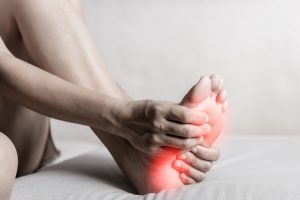What causes neck pain?
Neck pain can be caused by many factors and at first it can be difficult to figure out what exactly is the source. Finding the root cause of the problem can end it but sometimes it can be tricky. Scans like MRI and x-rays are not always the best in telling us why we have pain. The reason for this is that findings such as degenerative disks, spondylosis and many other changes are present when scanning those without any neck pain. So how can we account these changes to your pain? There are numerous articles and blog posts floating around the internet that list off the possible causes of neck pain. Whether you’re feeling a little bit of tension or experiencing excruciating pain it’s always best to speak to an experienced physio to consider all factors that may influence your pain.
Overuse, Underuse, or Misuse of the Neck
First and foremost, you need to make sure that you’re using your neck correctly. If you push, pull, or twist your neck for an extended period of time, you’re bound to experience some sort of discomfort. Make sure you are moving your neck through its full range of motion through the day. For example an office worker who has a room entrance to their left may find that they turn the neck that way multiple times more a day than to the right. Changing your position may be a great way of managing overuse and settling down your symptoms. Underuse can be just as dangerous in causing neck pain. This goes back to the age old saying of ‘if you don’t use it, you lose it.’ Joints become stiff through lack of use and muscles become weaker causing more problems.
Bad Habits
Besides using your neck incorrectly or not enough, there are several other bad habits that you need to avoid to keep your body healthy. These include smoking, drinking alcohol, eating a poor diet, and not getting enough sleep. All of these contribute to creating a toxic body that is prone to disease and pain. It’s never nice to experience pain but you must learn to see it as a vital part of your healing process and not as something that you should avoid.
Poor Posture
There’s a common misconception that bad posture is the root cause of all your pain. Sustained posture can contribute to some pain that you experience but it’s rarely the cause. It is more important to change your posture frequently and when you are sitting or standing. Maintaining a posture you find comfortable is crucial. Sustained postures can lead to tension, headaches, and neck pain. If you’re sitting in a desk job but your neck is constantly in pain, it could be time for change. Find a more comfortable chair or stand up and walk around more often than you typically do. Here is a tip – the expensive ergonomic chairs are not always more comfortable!
Poor Neck and Shoulder Strength
Another common cause of neck pain is poor support system strength. If a certain movement or action always results in discomfort then, in most cases, it’s not the movement or action that’s the problem but rather it’s your reaction to it that causes you the pain. For example, if you have migraines then even thinking about having your neck twisted might make you go into a migraine episode. The key here is to work on finding a healthier way to react to certain situations instead of automatically shying away from them because of previous experiences. Talk to your physiotherapist about any disorders that you might be experiencing and see if there’s anything that they can do to help. Manual therapy and specific shoulder and neck strengthening can be helpful in improving tolerance into different movements. You might also participate in a cognitive behavioural therapy program to help you change the way that you react to certain situations. In most cases, finding a healthier option is much simpler than you think, and it usually just takes an open mind and some self-reflection.
Joint Pain, Arthritis, or Arthritis-Like Symptoms
Other possible causes of neck pain may include joint pain, arthritis, and auto-immune conditions. Joint pain can be caused by many factors but it’s usually the result of age, genetics, or inflammation. As talked about previously though, the joint changes don’t always lead to symptoms. Rarely, it’ll be a sign of something more serious such as cancer, vascular or metabolic problems. Some people even experience joint pain as a side effect of taking certain medications. We tend to find other symptoms accompany the pain when dealing with more sinister pathology like weight loss, change of appetite, feeling generally unwell and constant night pain. Other symptoms that may require a trip to A&E include vision changes, facial numbness, speech or swallow changes, fast onset limb weakness or dexterity changes.
Stress
Last but not least, you have stress. Stress or tension or whatever you like to call it, causes discomfort around the head and neck and can even cause headaches Tension can be a symptom of a health issue, a catalyst that drives your pain or it can be the root cause of pain. Finding the source of stress or tension can be difficult and can often be difficult to manage. Stress and tension can be caused by bad habits such as smoking, drinking alcohol, or taking recreational drugs. It can also be a side effect of taking certain medications. It can be made worse by not exercising. Often though, your stress is caused by something that is out of your hands. Things like challenges at work, looking after ill family members or your favourite sports team losing to a last minute goal. Talking about this with a professional may help or even discussing with close friends and family. If you want to find the source of your tension, take a proactive approach and change your habits and behaviours to prevent any further discomfort. If you want to continue feeling good, reduce your stress and anxiety levels as much as you can.
To end this article, let’s reiterate the most important thing to do if you want to minimise your neck pain. First and foremost, make sure that you’re using your neck correctly. Next, make sure you are not avoiding movement and keep strong and active. If a certain movement or action always results in discomfort then, in most cases, it’s not the movement or action that’s the problem but rather it’s your reaction to it that causes you the pain. If you have joint pain, arthritis, or arthritis-like symptoms, then it’s always a good idea to ask your physio about it. Once you know it, treating it can be easy. Last but not least, reduce your stress and anxiety levels as much as you can.
If you want to get back to feeling your best and performing at your peak, then don’t wait any longer! Contact Pure Physio Sports today and schedule an appointment with one of our highly trained physiotherapists. Our team is dedicated to helping you overcome your injuries and get you back on the road to recovery. Whether you’re an athlete looking to improve your performance or simply want to feel your best, Pure Physio Sports has the expertise and experience to help you achieve your goals. Don’t let your injuries hold you back any longer – take control of your health and wellbeing with Pure Physio Sports. Contact us now to schedule your appointment and start your journey to a pain-free, active lifestyle!







